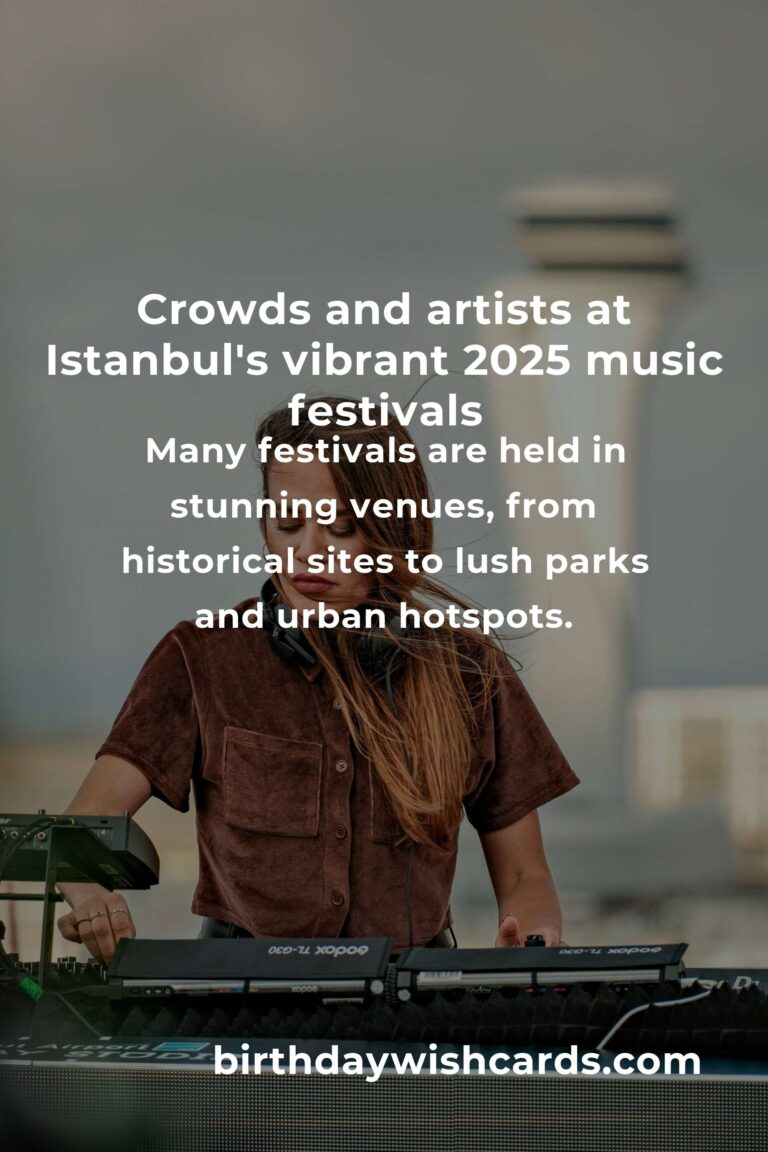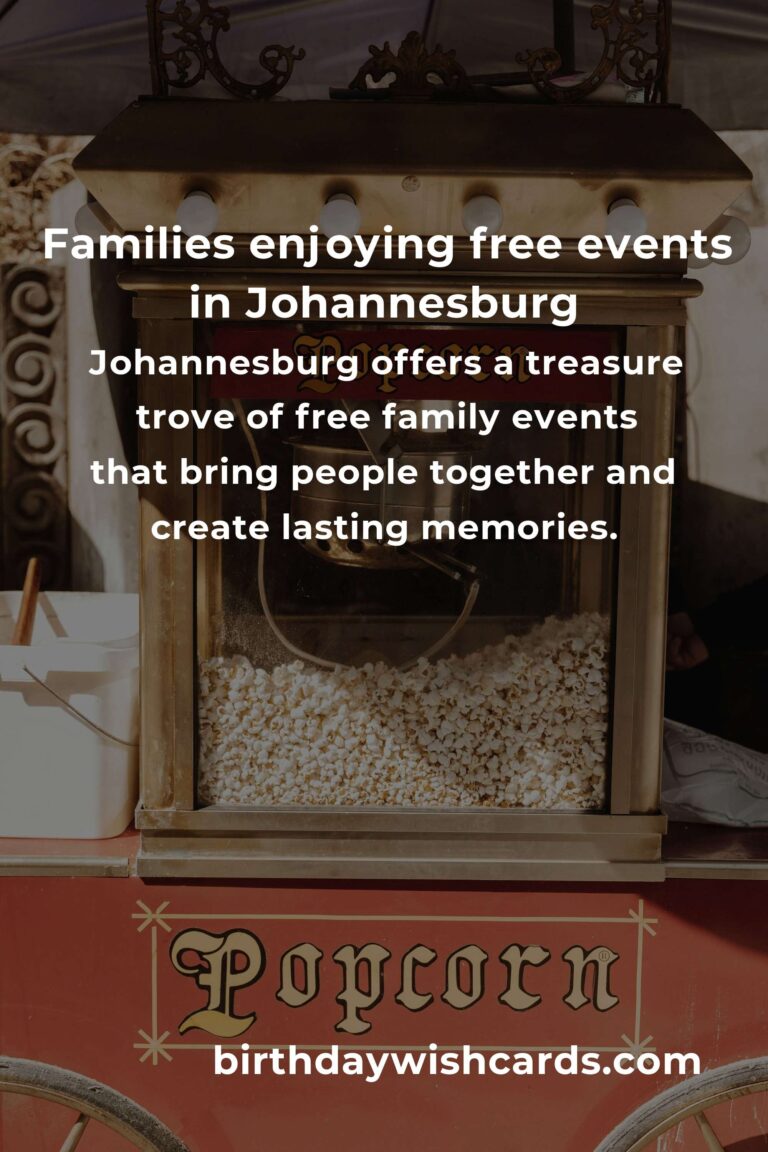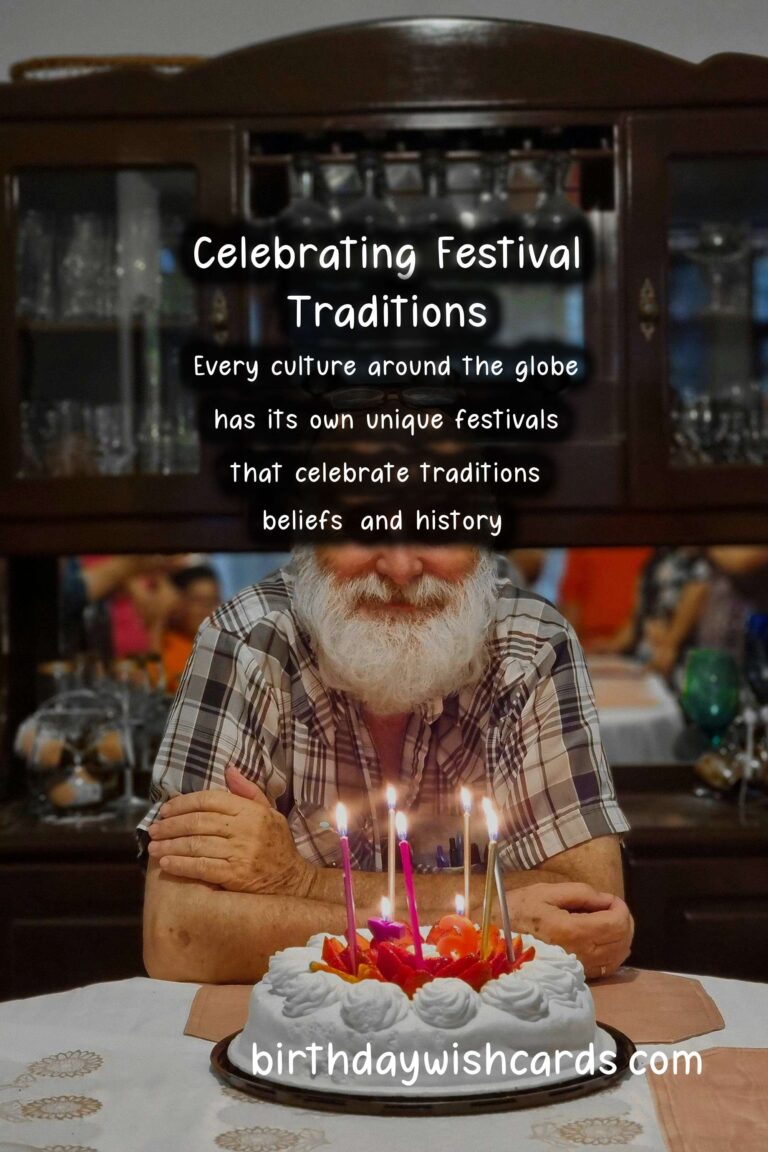
Every culture around the globe has its own unique festivals that celebrate traditions, beliefs, and history. These festivals often serve as a wonderful opportunity to bring communities together, share joy, and create new memories. In this article, we explore various enriching ways to create and celebrate festival traditions across different cultures.
The Importance of Festival Traditions
Festival traditions are not just about celebration; they encapsulate the essence of a culture. They help in:
-
Preserving cultural heritage and history.
-
Strengthening community bonds and relationships.
-
Providing opportunities for creativity and self-expression.
-
Boosting local economies through tourism.
1. Local Cuisine – The Heart of Every Festival
Culinary traditions often play a central role in festivals around the world. Each festival has its signature dishes that reflect the local ingredients and cooking techniques. For instance, during Diwali in India, families prepare sweets like ladoos and jalebis, while during Thanksgiving in the United States, turkey and pumpkin pie take center stage.
To create a new festival tradition, consider organizing a food festival that showcases local cuisine. Encourage locals to participate by sharing their family recipes, which can foster community engagement and preserve culinary heritage.
2. Dance and Music – A Universal Language
Dance and music are essential elements of festival celebrations. They not only entertain but also connect people through shared rhythms and melodies. Cultures worldwide incorporate dance and music into their festivals. For example, the Carnival in Brazil is famous for its samba parades, while the Holi Festival in India features vibrant music and dance as part of the celebration.
Consider starting a music and dance festival that encourages participation from various cultures, allowing for cross-cultural exchanges and collaborations. This could lead to the birth of a new, enriched cultural tradition.
3. Storytelling – Weaving Heritage Through Narratives
Oral traditions often flourish during festival times, where storytelling takes center stage. Sharing stories that highlight community values, history, and life lessons can be immensely enriching. In Africa, griots, or traditional storytellers, play an essential role in festivals.
Set aside time during your festival for storytelling sessions where individuals can share tales related to the festival’s origins, legends, and personal experiences. This can create a deeper sense of connection and understanding among participants.
4. Arts and Crafts – Showcasing Local Talent
Art and crafts are not only forms of creative expression but also representations of cultural heritage. Festivals can serve as a platform for local artisans to showcase their work. During the Glastonbury Festival in the UK, art installations created by local artists can be found throughout the festival grounds.
To enrich festival traditions, consider organizing craft markets where artisans can sell their creations. This offers an avenue for supporting local artists and preserving traditional crafts.
5. Environmental Awareness – Festivals with a Purpose
In an age where sustainability is crucial, integrating environmental awareness into festival traditions can be impactful. Festivals like Earth Day promote eco-friendly practices while educating attendees on environmental issues.
Initiate a tradition of incorporating environmental initiatives into your festival. This could include workshops on sustainable living, recycling programs, or clean-up drives. Engaging the community in sustainable practices will contribute positively to the environment and promote social responsibility.
6. Celebrating Diversity – Bringing Cultures Together
Many festivals celebrate diversity, showcasing the richness of different cultures. The World Culture Festival is an excellent example, uniting people from various backgrounds through shared experiences of music, dance, and food.
Create a festival that highlights and celebrates the diversity within your community. This can include cultural showcases, performances, and discussions that foster understanding and appreciation of different cultures.
7. Innovative Technologies – The Future of Festivals
As technology advances, so do the ways we celebrate festivals. Virtual reality, augmented reality, and social media platforms can enhance the festival experience, allowing for broader participation and engagement. For instance, the Burning Man Festival utilizes technology to create immersive experiences.
Incorporate technological innovations into your festival to attract younger audiences. Live-streaming events, using apps for interactive participation, or creating virtual reality experiences can ensure your festival traditions remain relevant in the modern age.
Conclusion
Creating and enriching festival traditions around the world is a beautiful way to bring communities together, celebrate diversity, and preserve cultural heritage. By incorporating local cuisine, music, art, storytelling, environmental initiatives, and modern technology, festivals can become more meaningful and impactful experiences for everyone involved.
Join the Celebration!
Whether you are looking to start new traditions or enhance existing ones, the goal is to foster a sense of belonging and joy within the community. Explore these enriching ideas and see how they can transform your festival experience.
Every culture around the globe has its own unique festivals that celebrate traditions, beliefs, and history. Culinary traditions often play a central role in festivals around the world. 
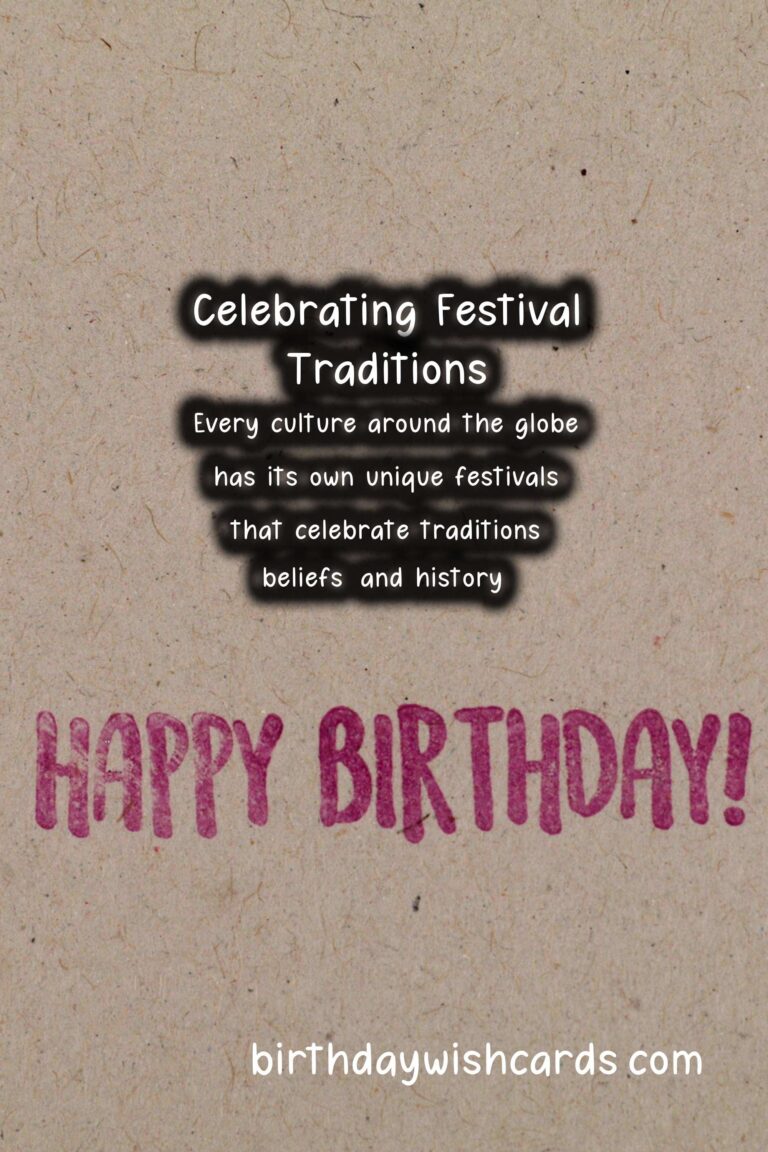
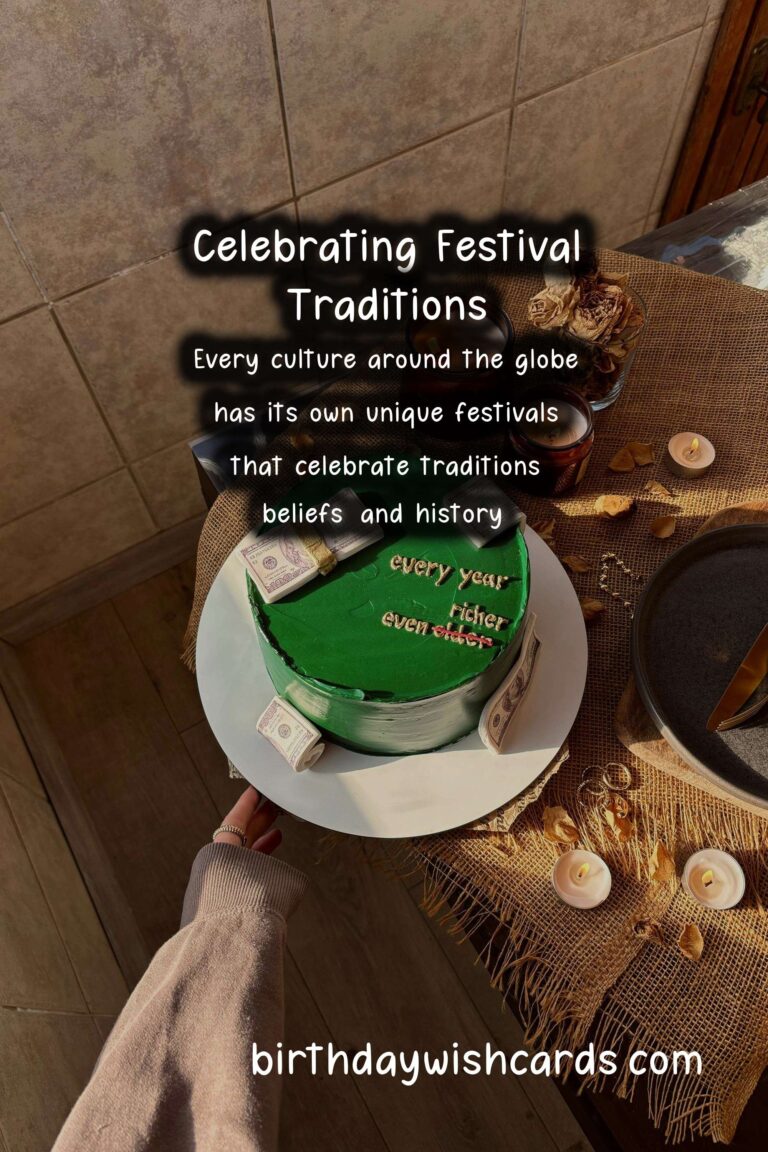
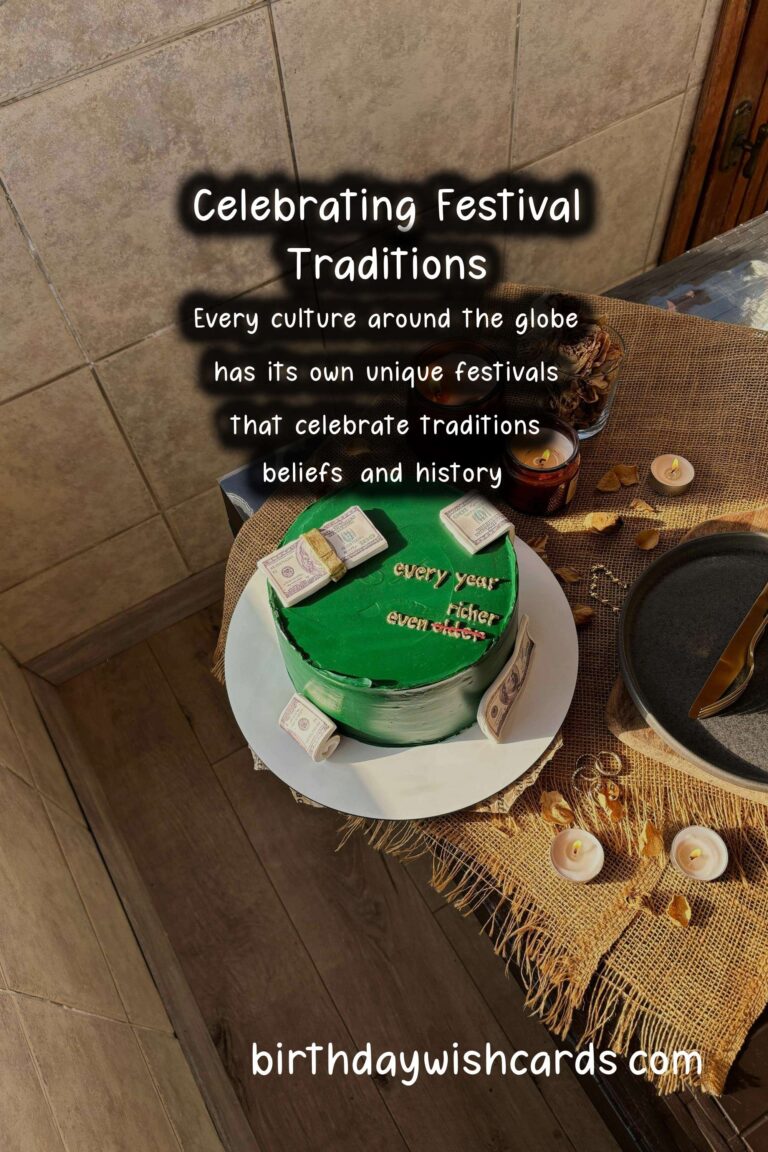
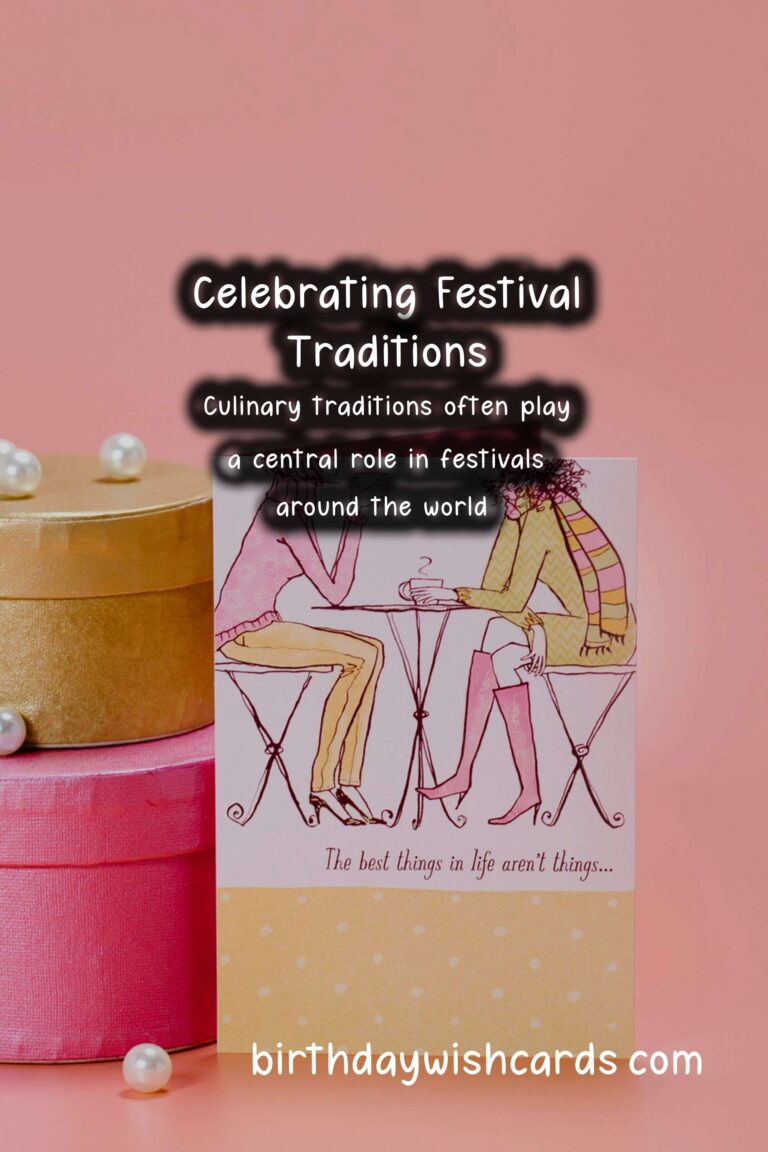
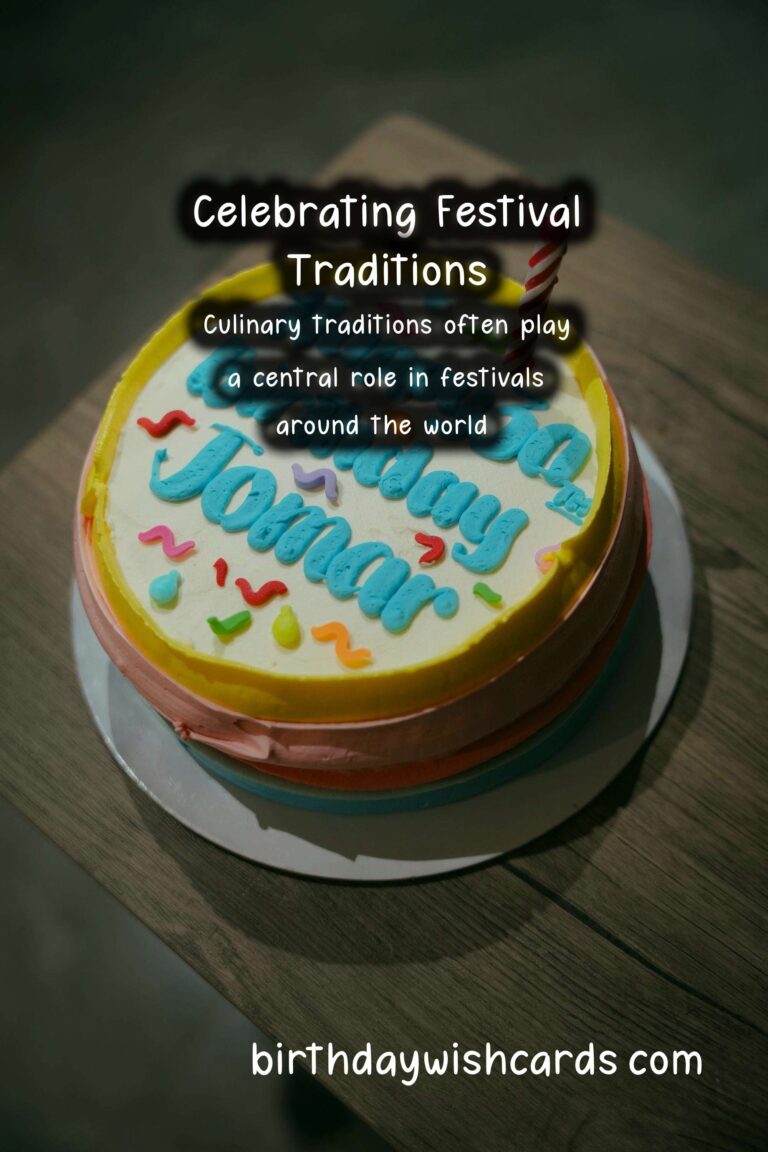
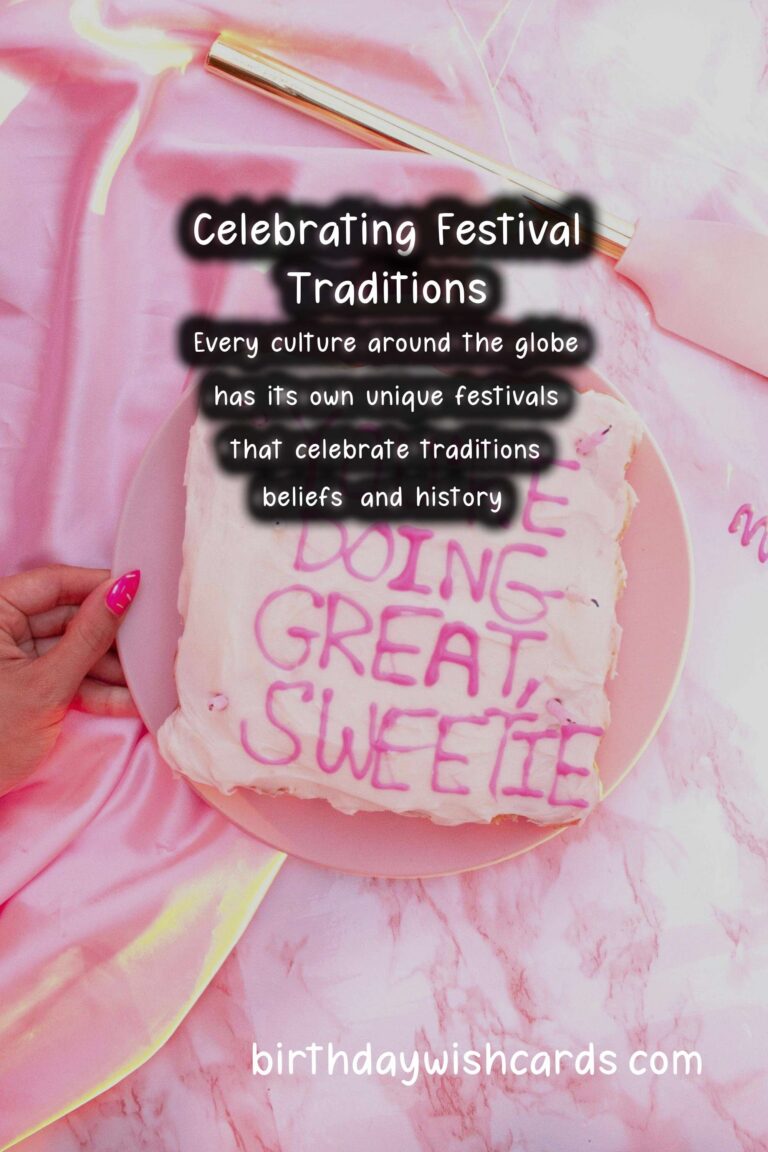
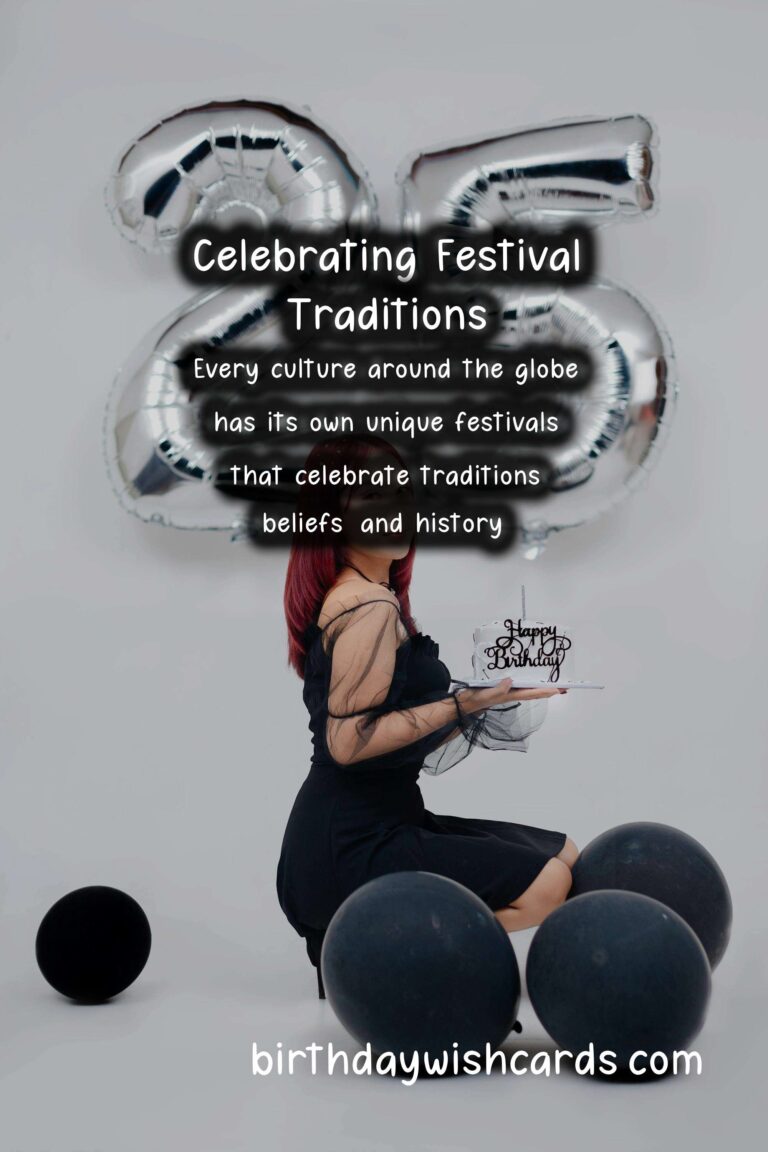
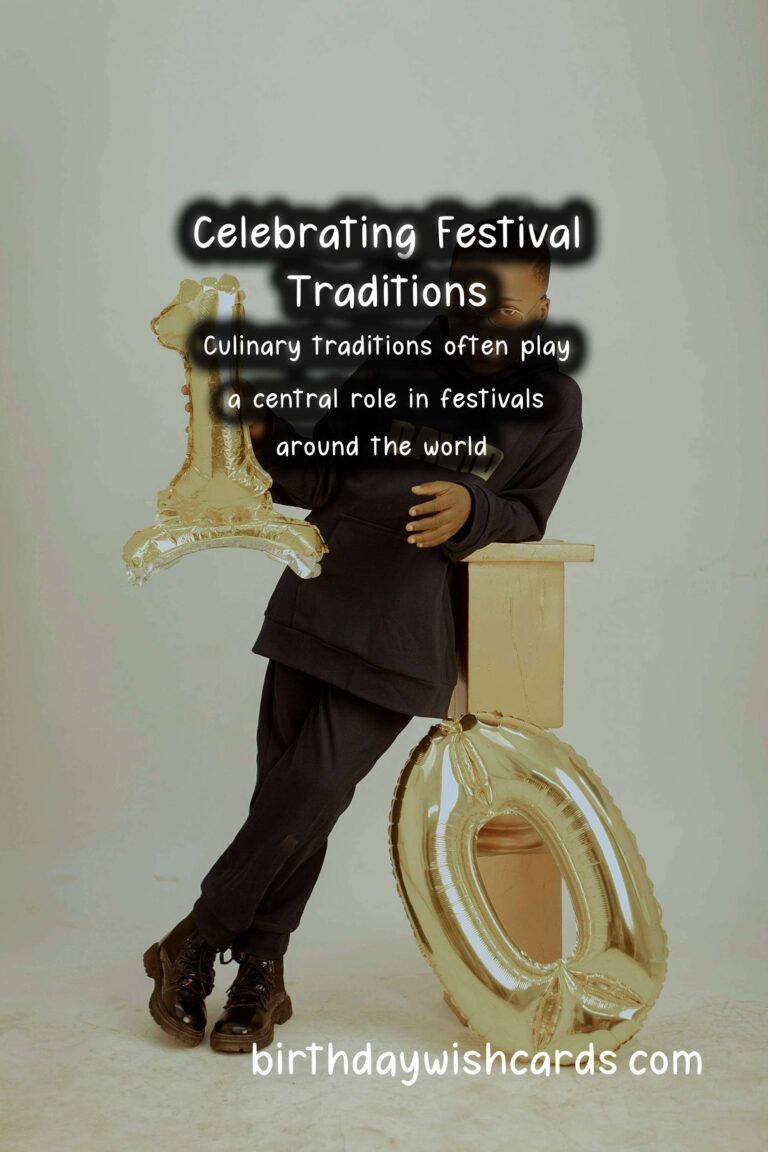
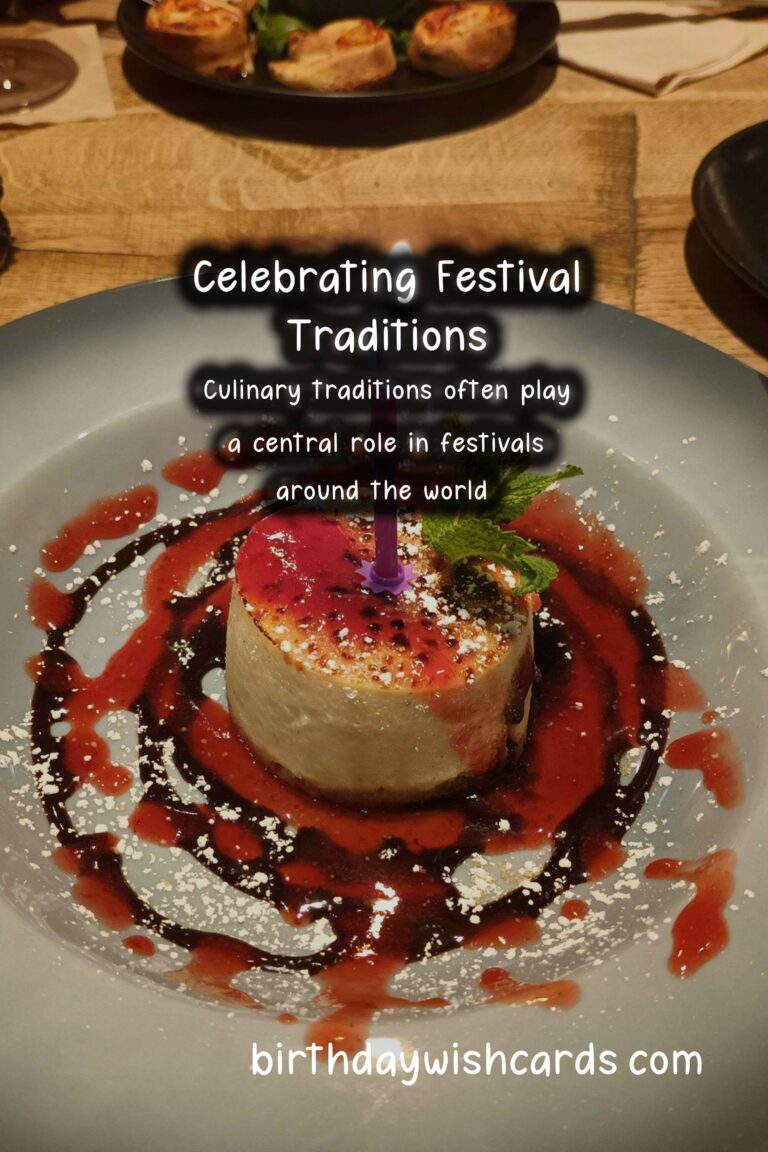
#FestivalTraditions #CulturalCelebration


